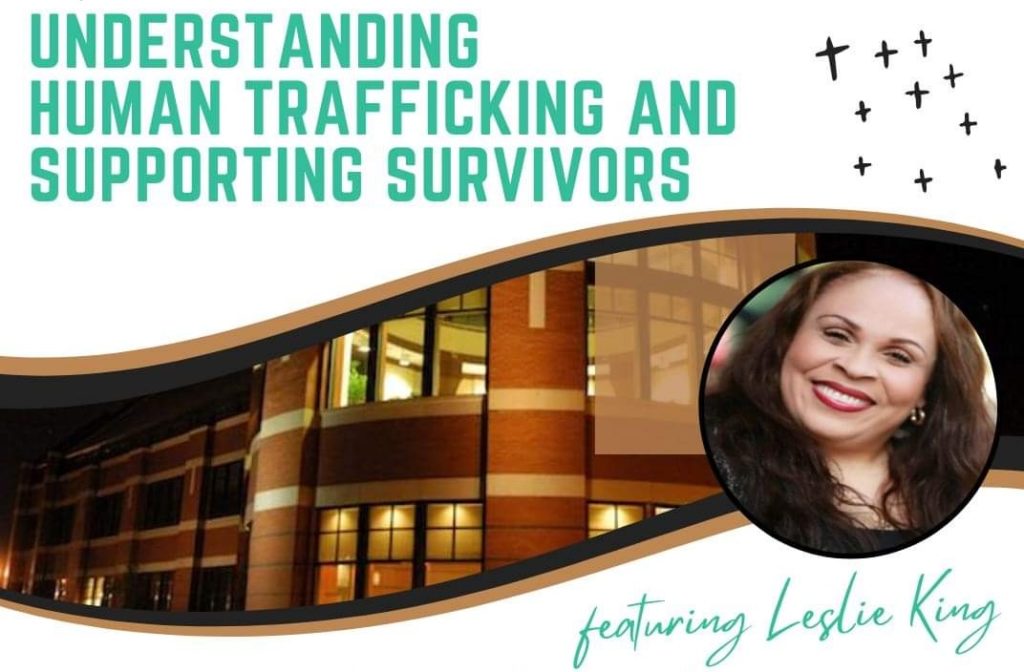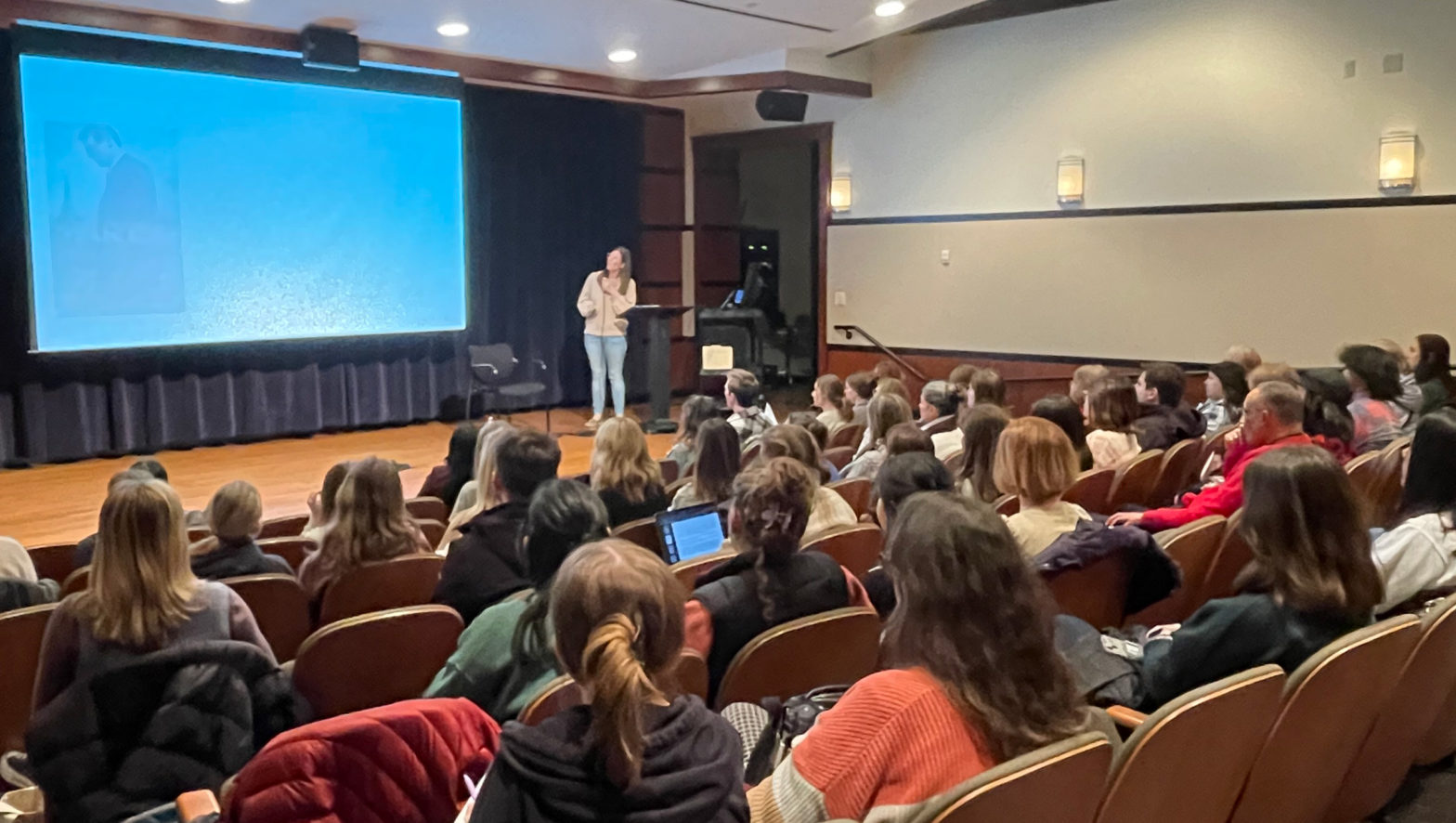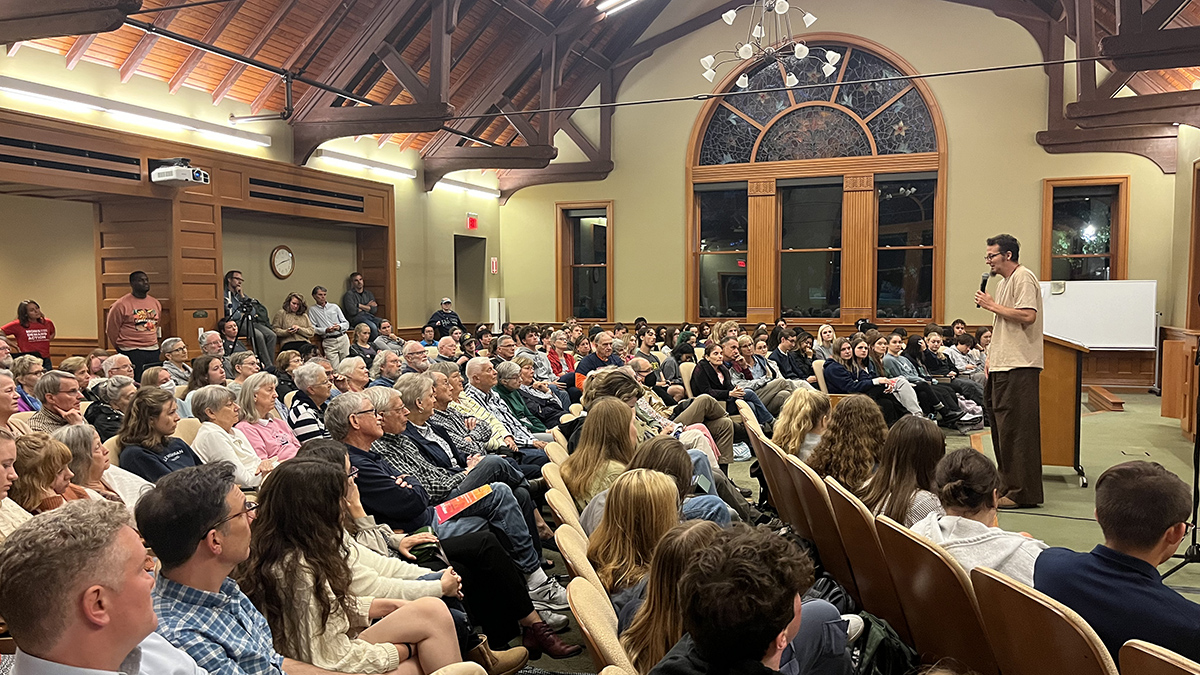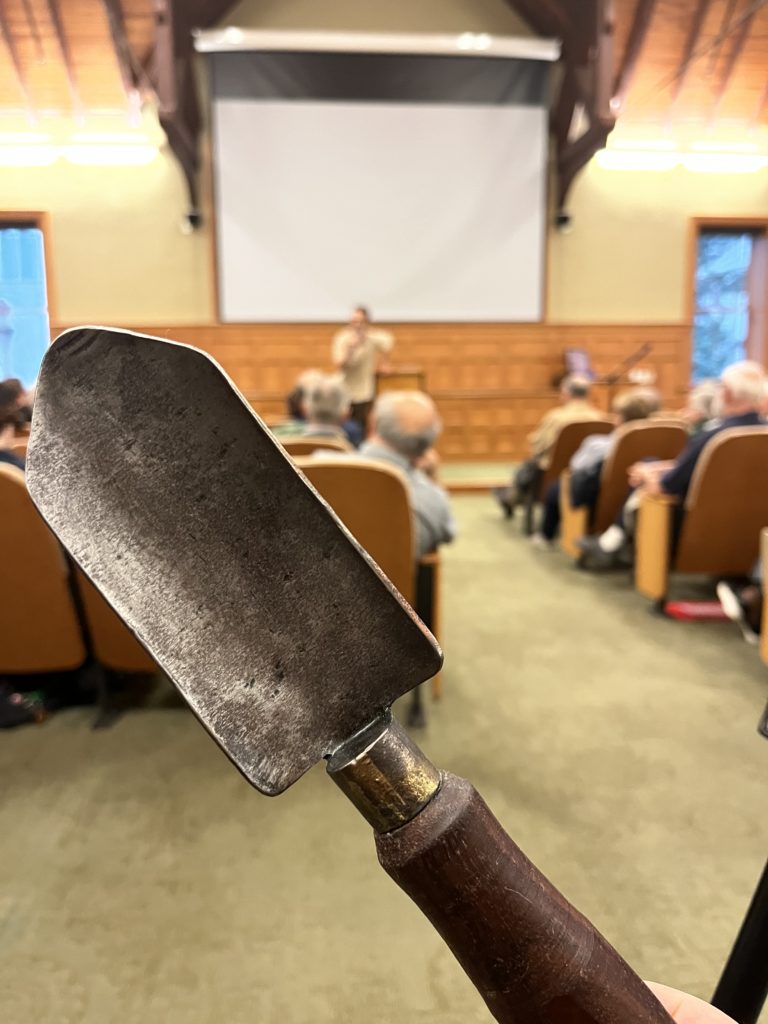On January 29th, the Hope College Social Work department hosted an anti-trafficking awareness lecture led by Heather McGannon from Michigan Abolition Project (MAP) and Leslie King, the CEO and founder of Sacred Beginnings and a trafficking survivor. Both women championed educating society about the extremity of human trafficking, engaging with the community about social deficits and eradicating human trafficking through support, justice, and healing.

In the halo of the stage lights, Heather McGannon quickly stilled the room with a single question: “When you think of human trafficking, what do you think of?” She began listing examples of what many of us were thinking about—perhaps movies such as Taken or maybe the most harrowing of cases we’ve seen on the news. To the tune of our pensive musings, Heather proceeded to explain that most cases of human trafficking do not look like the previously mentioned examples but are terrifyingly subtle. “It is happening right here,” she explained, “in the United States of America, here in Holland, Michigan.”
So, what are the numbers? Globally, Heather explained, there are approximately 28 million trafficked humans—that is 1/150 people (and this is probably a drastic underestimate, as it is hard to quantify the exact numbers). Of that nearly 30 million, 22 million are for labor, and 6 million are for commercial sex exploitation. These numbers have human trafficking profiting 150 billion dollars, making it the third largest illegal institution.
“Trafficking is all about power and control.”
– Heather McGannon
Heather explained that these numbers can be explained by one thing—demand. In a world with undesirable jobs and dangerous environments, individuals fall victim to a manipulative system that has failed them. “Trafficking is all about power and control,” she explained, articulating how the pornography and sex industry is partially to blame. The second reason human trafficking is flourishing in our backyards? Increased demands for cheap goods. You read that correctly—that’s us. Chocolate, coffee, the minerals in our makeup, the sugar in our cupcakes, the things we eat, the clothes we wear. As Heather said, if we want this epidemic to end, we must reevaluate our part of the supply-and-demand equation.
Throughout her presentation, Heather emphasized the fact that human trafficking is a silent beast in the shadows. It targets its victims, establishes trust, and fills the needs that people hunger for when the system has failed them. Then, they are isolated, abused, and controlled. Traffickers feed into the narrative that their victims are all alone, that the world has rejected them. It is not a crime that happens in an instant or can be easily seen in a room. Heather explained, “Often, we see the physical chains… but really, it’s the psychological chains.”
As Heather handed the spotlight over to Leslie King, the room darkened and her introductory video began. The story of her life – from her childhood to her days as a CEO – played out on the screen.
As Leslie King’s story captured in Some Angels Fight faded to a close, she strode to center stage. “Hi everybody” — King’s powerfully chipper voice pierced the haze of grief, shock, and awe — “I’m Leslie.” Leslie chuckled along with the awkward laughter that then reverberated around the room.
With her powerful presence and her palpable passion, Leslie described the many devastating effects of human trafficking. “Once they get the mind, the body follows,” She explained, detailing the physical, mental, social, and spiritual wounds that many victims experience preceding and following their escape—“my nights and days were backward… my life, period, was backward… all we know is survival.” Leslie paced the stage as she described the harrowing fear, distrust, and pain accompanying survival. When asked how she copes with the pervasive mental health issues, she proclaimed, “I refuse to be controlled by anyone or anything ever again.”
Leslie explained that there is a lack of recognition of the journey of healing that survivors go through once they get out of the bondage of trafficking. Throughout her speech, Leslie described the physical, mental, and emotional effects of trafficking that follow a survivor for the rest of their life. Building off Heather’s educational presentation, Leslie’s stories emphasized that modern-day slavery is a malicious cycle that exploits and depends on the consumerism of everyone. In addition, Leslie underscored that social workers are involved in a broken system and that empowerment and self-efficacy are key to a survivor’s healing.
That is just what Leslie did – she survived and became what she likes to call a “renegade social worker.” But the journey there was arduous. “When we leave our traffickers,” she began, “we don’t know what to do… we’re lost [so we go back to what we know].” Often, survivors find that they escape to a world that no longer supplies the scaffolding they need—“we can’t get a job because of our criminal history… we were made to do things… we did what we had to do.” Last year, Leslie King became the first and only trafficked survivor in Michigan to receive an inaugural pardon—“I didn’t know what it meant to be free… my life was a cage.”
Leslie King now returns to the streets to rescue and support other individuals who share her story. She encouraged social workers to work outside of the textbook and truly listen to their clients—one’s personhood extends past the clinical standpoint.
When asked how people like the students at Hope College could help, Leslie responded – “You can’t help us if you don’t know anything about us.” The media paints a picture of human trafficking that can make it easy for people to neglect the pervasiveness of the issue. Many people believe that it is an international issue. However, Leslie passionately explained that she returns to Holland, Michigan, roughly two to three times per month due to the trafficking occurring here.
Leslie depicted human trafficking as the byproduct of the breakdown of the community. To heal that fracturing, caregivers and community members can become involved in a myriad of ways. Supporting homeless populations, championing justice, and fighting for equity in resources can all be protective factors that prevent human trafficking. Functionally, being mindful of one’s consumer footprint and shopping fair trade can help decrease the effects of human trafficking and forced labor on a macro or global level.
Overall, Leslie embodied strength, boldness, and resilience while also showing her deep love and passion for all people to live free of abuse and exploitation. She connected with the audience tangibly and authentically. She invited her listeners to deeply connect with her story and with the stories of the millions of people entrapped in the abhorrent cycle of trafficking, abuse, and human exploitation.
At the close of the event, attendees made their way toward the stage to purchase King’s biography and linger a moment longer in the hope of absorbing even more of her wisdom. As the final sounds of chatter and footsteps left the auditorium, taking deep breaths, silent tears, and deep gratitude with them, seven words lingered on the black screen overhead: Leslie has saved over 600 victims.
“They’re human… and I won’t let anyone forget that.”
—
Clara Roche is a sophomore at Hope College, Majoring in Social Work with a minor in Religion. She is passionate about social justice and advocacy and is involved with these measures in the Social Work Department.
Mahleija Tanner is a sophomore at Hope College majoring in Social Work, and she is a passionate advocate for anti-human trafficking with an emphasis on international dynamics.
How can I help?
- National Human Trafficking Hotline (1-888-373-7888)
- Shop Responsibly by purchasing ethically made and fair-trade goods and consume LESS!




